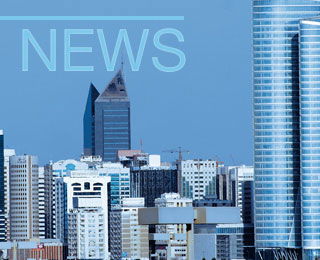Lafarge Industrial Ecology (ECOCEM) has signed two major contracts to manage and operate existing refuse-derived fuel (RDF) platforms in Suez and Qalyubeya, Egypt.
In an effort to continue its efficient waste management processes, the company has signed a 10-year agreement to renovate and upgrade the platforms in Suez, and another separate 10-year agreement to manage and operate the existing platforms in Qalyubeya.
Lafarge ECOCEM has already added a new production line in the Suez platform, and plans an additional line within one year of signing its contract with the governorate. The annual RDF to be produced at the plant will equal to 42,000tpa, and the investment by the company will total EGP12.7m.
ECOCEM has also already added an extra line in the Qalyubea plant, in addition to renovating one production line. The company’s future investments in the governorate will increase the produced RDF by 32,000tpa, and production can reach up to 280,000tpa. Both investments at the Qalyubeya plant were funded by GIZ and the Bill and Melinda Gates Foundation with a total investment of US$1m.
“In line with our ‘Building Egypt 2030’ campaign, Lafarge is committed to help solve the issue of waste in Egypt, and to continue taking the necessary steps toward sustainable development,” said Hussein Mansi, CEO of Lafarge Egypt. “At Lafarge Egypt, we feel it is our responsibility as a leader in building solutions to be the major proponents in waste management, as we have the resources, and plan to continue finding many opportunities to make a difference.”
In addition, in March of 2015, at the Egypt Economic Development Conference in Sharm el-Sheikh, Lafarge Egypt and Orascom Telecom Media and Technology Holding (OTMT) signed a memorandum of understanding to develop a waste management framework of municipal and agricultural waste.
Lafarge Egypt and Ecocem have implemented many projects over the past three years to increase the use of alternative fuels and aim to achieve an average fuel substitution rate of 25 per cent by the end of 2015. More than 260,000t of waste have been processed and burnt in Lafarge’s Sokhna plant since 2013, an equivalent of 100,000t of fossil fuels. The use of these alternative fuels, which aims to limit greenhouse gas emissions, forms part of the recent c
Lafarge ECOCEM Egypt was established in 2010 to support Lafarge Egypt in developing and providing effective solutions to facilitate the process of transforming wastes into alternative fuel that can be used in Lafarge’s Sokhna cement plant.
